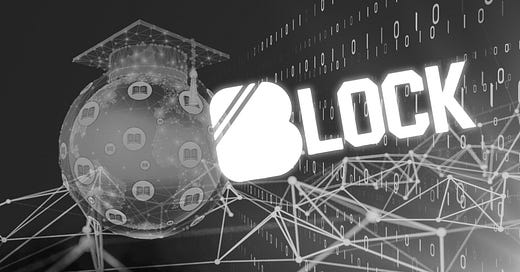RWA Edition: Tokenized Diplomas How BCdiploma Brings Blockchain Credentials to Web3
Unlock the Future of Education with Tokenized Diplomas and Blockchain-Powered Credentials
Imagine a world where your diploma isn’t just a paper copy tucked away in a drawer but a verifiable, tamper-proof digital asset you can easily prove ownership of on the blockchain. This isn’t science fiction; it’s happening now. With the tokenization of real-world assets (RWAs) extending beyond real estate and commodities, education is emerging as the next frontier. Blockchain-based credentials like diplomas and transcripts are transforming how we verify knowledge, bridging human capital with blockchain technology.
Why It Matters
Tokenized credentials are revolutionizing education by merging decentralization, identity verification, and human capital into Web3 ecosystems. They offer trustless, fraud-proof proofs of qualifications that can travel across borders with ease, enabling everything from decentralized reputation systems to on-chain resumes. For crypto enthusiasts, this innovation marks a crucial step toward integrating RWAs into our decentralized future.
BCdiploma: Transforming Education with Blockchain Technology
At the forefront of this movement is BCdiploma, a blockchain-based platform that enables educational institutions to issue verifiable, tamper-proof digital diplomas and certificates. These credentials use Ethereum smart contracts, and recipients can access them securely through a unique, verifiable URL or QR code.
Unlike PDFs or centralized database systems, BCdiploma’s blockchain credentials are:
Immutable and resistant to forgery.
Permanently accessible, with no fears of lost records.
Fully verifiable, eliminating the need for third-party intermediaries.
GDPR-compliant and encrypted, ensuring privacy and security.
This aligns perfectly with Web3 principles of ownership, transparency, and privacy, making BCdiploma ideals for the blockchain-savvy community.
Why Tokenized Diplomas Are the Future of RWAs
Tokenized diplomas deliver immense benefits for the RWA tokenization ecosystem:
Real, valuable assets: Educational credentials represent the acquired skills and qualifications that unlock career opportunities and underpin workforce mobility.
Streamline verification: With tokenized credentials, institutions and employers no longer deal with slow, expensive authorization processes.
Digital scarcity and provenance: Each credential is uniquely minted, traceable, and auditable, ensuring authenticity and ownership belongs solely to the graduate.
For crypto users, the possibilities expand far beyond simple verification:
Decentralized reputation systems built on immutable academic history.
On-chain resumes or NFTs as portable verification of skills.
DAO contributor vetting, where verified credentials traceably demonstrate expertise.
DePIN integrations offering incentives for learning and professional growth.
This edition is brought to you by RentFi, the innovative platform that provides monthly passive income from high-yield real estate properties worldwide. Say goodbye to paperwork, minimum investments, and property management headaches. Start earning today!
Global Adoption of Blockchain-Based Diplomas
BCdiploma has already issued over 500,000 tokenized credentials across more than 20 countries, partnering with some of the top educational institutions worldwide. These include:
Université de Lille (France)
INSEEC U.
Rennes School of Business
Université de Genève (Switzerland)
These organizations now issue blockchain-powered diplomas for undergraduate, graduate, and executive programs, signaling growing adoption of tokenized credentials in both academic and enterprise sectors.
How Blockchain Credentials Power Web3 and DeFi Ecosystems
When integrated into Web3 ecosystems, tokenized diplomas unlock exciting new possibilities:
Decentralized IDs (DIDs): Credentials can be linked directly to wallets or identity systems, enabling students to carry their academic history within their Web3 profiles.
Token-gated communities: Blockchain diplomas could grant access to exclusive DAOs or Web3 learning hubs.
Skill staking: Verified on-chain credentials could be staked as proof of expertise within decentralized contributor networks.
DeFi human capital lending: Blockchain-based academic credentials could strengthen crypto lending protocols by serving as verifiable proof for creditworthiness.
Future innovations might include AI-driven hiring platforms or cross-chain compatibility to enhance credential integration across diverse ecosystems.
Challenges to Mainstream Adoption
Despite the promise of tokenized credentials, hurdles remain. Educational institutions and blockchain developers must address:
Adherence to data privacy regulations like GDPR.
Seamless integration with traditional systems that are resistant to change.
Bridging the knowledge gap for HR departments and legacy sectors, many of which are unfamiliar with Web3 technologies.
Still, as interest in decentralized identity grows and governments explore digital credentialing, these barriers will likely diminish, making way for broader adoption.
Final Thoughts
Education is one of the most underexplored yet pivotal real-world asset categories ripe for tokenization. Tokenized credentials do more than simplify verification; they reimagine diplomas as programmable and composable assets within Web3. BCdiploma exemplifies this emerging market, proving that blockchain can modernize education and human capital authentication without compromising privacy or security.
Would you tokenize your degree and carry it in your crypto wallet? Tokenized education is already here, and it’s just the beginning.
Join the Conversation
Subscribe to Block Consulting’s RWA Editorial for cutting-edge insights on blockchain, decentralized identity, and real-world asset innovation.










